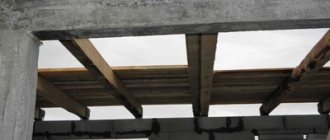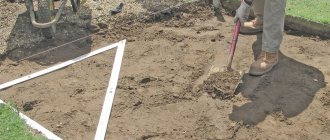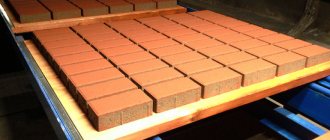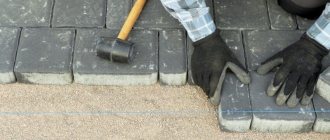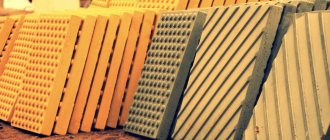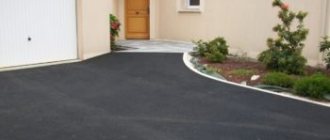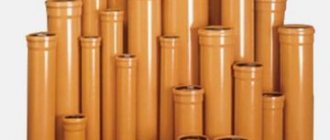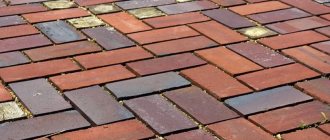If you're planning to renovate your home's exterior, know the rules for installing outdoor tiles. This material is often used to decorate building facades, veranda floors, sidewalks or driveways. With each type of cladding there are installation subtleties, but in general the technologies have similar parameters.
Tiles perfectly decorate both interior and exterior
Suitable materials
Not every tile is laid outdoors. If there are no special restrictions on the use of tiles in the interior decoration of the house, it is important to choose the appropriate material for the exterior. The best option is clinker and porcelain stoneware. If the load is insignificant, select a particularly durable type. For sidewalks and parking lots, it is better to give preference to stone or standard street tiles.
In order not to make a mistake with your choice, check that the product you like meets the following criteria:
- moisture resistance;
- low porosity;
- resistance to temperature changes;
- immunity to frost;
- resistance to abrasion, pollution, shock;
- high degree of strength and maximum permissible load;
- no negative interaction with ultraviolet radiation.
Moisture and frost resistance are the main selection criteria
Tiles are laid in different ways. The further acquisition of auxiliary materials depends on the chosen technique. For sidewalks, cement and sand are sufficient. If we are talking, for example, about porcelain stoneware, make sure you have a strong and high-quality adhesive mixture. The basic requirements are based on almost the same parameters:
- immunity to frost;
- resistance to thermal fluctuations;
- moisture resistance;
- strength;
- withstands exposure to ultraviolet radiation.
Pay attention to ductility, adhesion and other properties that are important for tile mortar.
The best manufacturers
We offer a brief description of the largest and most popular manufacturers of ceramic tiles in Russia.
Keramin
European manufacturing company. It has the largest sales volumes in the ceramics market. Specializes in the production of ceramic bricks, granite, tiles, sanitary ceramics. All Keramin products have registered certificates of conformity, and sanitary ceramics have a certificate of hygienic registration, environmental ISO 14001-2005.
Photo: Keramin tiles
Finished products undergo constant quality control. New equipment has been installed in the workshops, thereby reducing the duration of the technological process and increasing production volumes.
Kerama Marazzi
Domestic manufacturing plant with a wide network of distribution companies. Founded in 1988 in the city of Orel.
Kerama Marazzi produces ceramic tiles and granite, borders, steps, panels, mosaics and other elements. The company's catalog contains over 2000 items.
The quality of products is confirmed by compliance with international, state standards and requirements, and expert opinions. The Marazzi factory also produces many thematic collections of ceramics. Applications for individual orders are accepted.
Stone Age
Russian manufacturing plant. It has been producing paving slabs for more than 12 years. In 2012, the entire production line was re-equipped to European standards. The ColorMix system was introduced to make an analogue of imported clinker. Models of floor slabs with granite, quartz, and basalt chips have been added.
Gothic
Domestic tile manufacturer. The factory was founded in 2005. “Gothic” products are often called mosplite, since many iconic places in Moscow are paved with it (Alexandrovsky Garden, Old Arbat). German HESS equipment is installed in the workshops. The tiles are created using the semi-dry vibration pressing method. Manufactured products are divided into PREMIUM and PROFI classes. The first has a high cost and imitates natural stone in appearance, the second is standard sidewalk tiles in different colors.
The necessary conditions
To lay a sidewalk, one not only selects the right materials, but also observes certain specifics of the work. This applies primarily to environmental conditions. When planning renovations to the outside of a building, weather influences are taken into account, which can sometimes become a very difficult task.
The surface must be clean, dry, and the glue drying process must occur naturally. That is why it is recommended to carry out installation in calm weather at an ambient temperature of 15-22 degrees and without precipitation. If the rules are not followed, there is a risk of destruction of the masonry. This is due to the loss of glue properties in unfavorable conditions.
To extend the service life of the coating, it is recommended to lay outdoor tiles only in good weather conditions
Similar, but very different
The manufacturing technologies of porcelain stoneware and classic tiles are quite similar.
However, their installation processes vary greatly. This is especially true for installations carried out outdoors.
So it is not allowed to use a cement-sand mixture, but only special adhesive compositions. In addition to traditional methods, a technology in which porcelain stoneware slabs are fastened using trusses, brackets and self-tapping screws is currently being cultivated and spread more and more widely.
Surface preparation
Also, during installation on the street, the requirements regarding the surface to be covered must be observed. If we are talking about paving slabs, provide a depression in the soil with a slight drainage slope, and also fill in a compensatory cushion of sand and crushed stone.
When it comes to porcelain stoneware and similar materials mounted on mortar, it is best to prepare a perfectly flat surface by pouring a concrete screed. Remember that you can lay the tiles only after the base has completely dried, this will take from 7 to 28 days. If you are building a horizontal platform from scratch, you must use reinforcement mesh and rods for reinforcement. A liquid mixture is used for screeding.
As for vertical surfaces, in order for the tile to be firmly fixed to it, in addition to removing serious flaws, a metal mesh should be fixed over the plaster. With its help, it is possible to improve the adhesion of the cladding to the base.
The reinforcing mesh will give you an additional guarantee of reliable fastening of the tiles
For street work, it is important to provide waterproofing. This is especially true for the porch floor and areas adjacent to the foundation of the house. For this purpose, sheet roll materials or bitumen mastics are used.
How to choose the right porcelain tiles
When choosing a material, you need to pay attention to a number of important points. One of the most important is the tile manufacturer. The level of quality depends on the manufacturer, so preference should be given to Italian models. They are more expensive than domestically produced porcelain tiles, but they also have higher performance characteristics.
The floor on the terrace of a private house is lined with porcelain tiles imitating stone
The second most important parameter of the tile is the presence of a non-slip surface. Buying anti-slip porcelain tiles for outdoor use will ensure your safety, as you can easily get injured when using a slippery surface. High-quality tiles should be rough to reduce the risk of injury even when wet. In addition, too smooth tiles will have to be frequently sprinkled with sand and other anti-slip materials, which can lead to a rapid loss of attractiveness of its appearance.
Using anti-slip, frost-resistant porcelain stoneware for anti-slip outdoors is more profitable than using corrugated surfaces. The latter do not glide as much as smooth ones, but they are much more difficult to clean from dirt and quickly wear off, acquiring an unattractive appearance. There are several varieties of non-slip frost-resistant porcelain stoneware in terms of wear resistance:
- PEI I, II – low wear resistance, recommended for cladding vertical surfaces or floors that are not expected to bear heavy loads;
- PEI III – medium level of wear resistance, best used in residential areas with low traffic intensity;
- PEI IV – good wear resistance, can be used in public buildings;
- PEI V – maximum level of stability.
The choice of the appearance of anti-slip frost-resistant porcelain tiles for the street, as well as the size of the tiles, depends solely on your taste. The price per m2 of porcelain stoneware for facades or steps depends on the manufacturer and can vary over a very wide range. For example, for domestic manufacturers it can be 700-800 rubles. per sq. m, and for foreign countries – 1000-1500 rubles.
The choice of frost-resistant porcelain tile design and tile size depends solely on your preferences
In addition, when choosing, it is necessary to take into account a number of additional material parameters. These include, for example, caliber - the difference between the size indicated on the packaging of the material and its actual dimensions. This difference can be up to 0.5 mm and is of great importance when covering floors or walls.
You can check the quality level of tiles quite simply. To do this you need to estimate its weight. For example, a tile of frost-resistant porcelain stoneware for outdoor use, 30x30 cm, 8-9 mm thick, should weigh about 2 kg. If the weight of the material is less, this means that the manufacturer has saved on quality and such tiles will quickly fail.
Features of choosing stone-like porcelain tiles
Porcelain tiles with natural stone styling are the most popular, so it is very important to know how to choose this particular type of material. There are options stylized as granite, marble, onyx, sandstone, jasper, basalt and many other types of stones. They are widely used for the manufacture of steps for stairs made of porcelain stoneware, cladding facades and for other purposes.
The most common are two options for imitation of natural stone. This is an accurate imitation and artistic decoration. The first option exactly repeats the pattern and texture of a natural mineral, while the second is characterized by the presence of decorative additives. These include gold veins, stylization of rock paintings, and so on. In the Kerama Marazzi porcelain stoneware catalog, for example, you can find many similar options.
The area under the canopy is decorated using glazed porcelain tiles stylized as stone
Advantages of marble and travertine porcelain tiles
Natural marble and travertine are among the most popular materials for imitation. An imitation of the latter is very difficult to distinguish from the original even for a specialist, since the tile completely replicates the color and texture of the material. With artificial marble, everything is somewhat more complicated; it is very similar to natural marble, but does not have the depth of black color that natural stone is characterized by. At the same time, large tiles look better, for example, laying marble steps made of porcelain stoneware for the street using 1200x600 mm tiles will look better than 600x600.
Rules for installation with glue
Let's consider the first method of attaching the outer cladding. Since porcelain tiles are being laid with adhesive, make sure the surface is clean before starting. It is degreased, dust particles are removed, treated with an antiseptic and thoroughly primed. After this, they begin to apply the solution.
Substrate preparation is important
To distribute the mass evenly, use a notched trowel. The technology for fixing elements does not differ from standard interior work. Apply adhesive to the surface or back of the material and place the tile in the intended place. Then adjust the position, align the seams if necessary and tap with a mallet, checking the overall level.
Please note that in cold weather the glue dries more slowly, but in hot weather, on the contrary, it hardens much faster. Dilute the solution in small portions. It is better to perform installation in several stages.
Types of porcelain stoneware
This material appeared on the market relatively recently, but has already gained great popularity among buyers. The use of frost-resistant porcelain stoneware made in Italy and Spain is considered a sign of good taste and prosperity. The material itself appeared as an alternative to natural stone, but modern tile models can imitate various surface options. The following main types of porcelain tiles are distinguished:
- technical - durable and reliable, but not particularly attractive in appearance. Technical tiles are relatively inexpensive and are used for cladding industrial premises and technical areas;
An important criterion when choosing porcelain stoneware for the street is the degree of planned load on the surface lined with this material
- matte – characterized by an unglazed surface. The advantage of using matte porcelain tiles for outdoor use is that this type of material is distinguished by a high level of durability, but such tiles require regular care, since marks easily remain on its surface;
- polished - has a characteristic mirror shine, most often used for cladding facades and other vertical surfaces. It is not recommended to use polished tiles for tiling floors or steps, as over time the coating wears off and the tiles become dull;
- glazed - the surface of this type of porcelain stoneware is covered with a special glaze, which gives it a unique shine. Such outdoor porcelain tiles can be stylized to resemble various materials and have different colors and patterns. It is better to use it for finishing walls and other surfaces that will not be subject to heavy loads;
- satin - porcelain stoneware, on the surface of which a layer of mineral salt is applied. After firing, such tiles boast a velvety surface structure. Used for decorative purposes;
- structured is another decorative variety that can look like products made from natural stone, wood, leather and other materials.
In the modern construction market there is a wide selection of porcelain tiles of various designs and characteristics.
Each type of tile has its own advantages and disadvantages, and you should choose depending on your needs and the characteristics of the material’s use.
Laying outdoor tiles
But how to lay a sidewalk on the street? To fix the elements on the surface, provide a sand-cement cushion. An important condition is the ideal alignment of the base.
If the installation of tiles with glue is carried out in the “toward” direction, here everything is the other way around. First, install the curbs and fill their base with concrete. Then start laying the tiles on the sand, going about 2/3 deep. Move in rows away from you. After leveling, fill it with a dry mixture of sand and cement. Fill the joints completely with the mixture and add water to fix the coating.
Decorating outdoor areas with tiles is a great way to give the area a neat look and highlight the style of your property.
Features of waterjet cutting of porcelain stoneware and other processing methods
Often, when installing porcelain tiles, the material has to be cut. This can be done in various ways. For example, you can use a special machine for cutting porcelain stoneware. It can be electric or manual and allows for precise cutting of hard material. The machine uses special discs for cutting diamond-coated porcelain stoneware.
It is worth understanding that using a machine it is convenient to cut slabs into large pieces, but to cut out shaped products you will need laser or waterjet cutting. The first method is carried out using special industrial lasers, and the second is a jet of water with abrasive materials. Waterjet cutting is cheaper than laser cutting, but at the same time allows you to get good results.
To use waterjet cutting, you will also need a special machine, but with its help you can get delicate ornaments or exquisite patterns from porcelain stoneware slabs.
It is not without reason that porcelain tile is one of the most popular finishing materials on the modern market. It boasts high performance, a variety of design options and ease of installation. By choosing porcelain stoneware finishing, you choose quality, reliability and attractive appearance.

